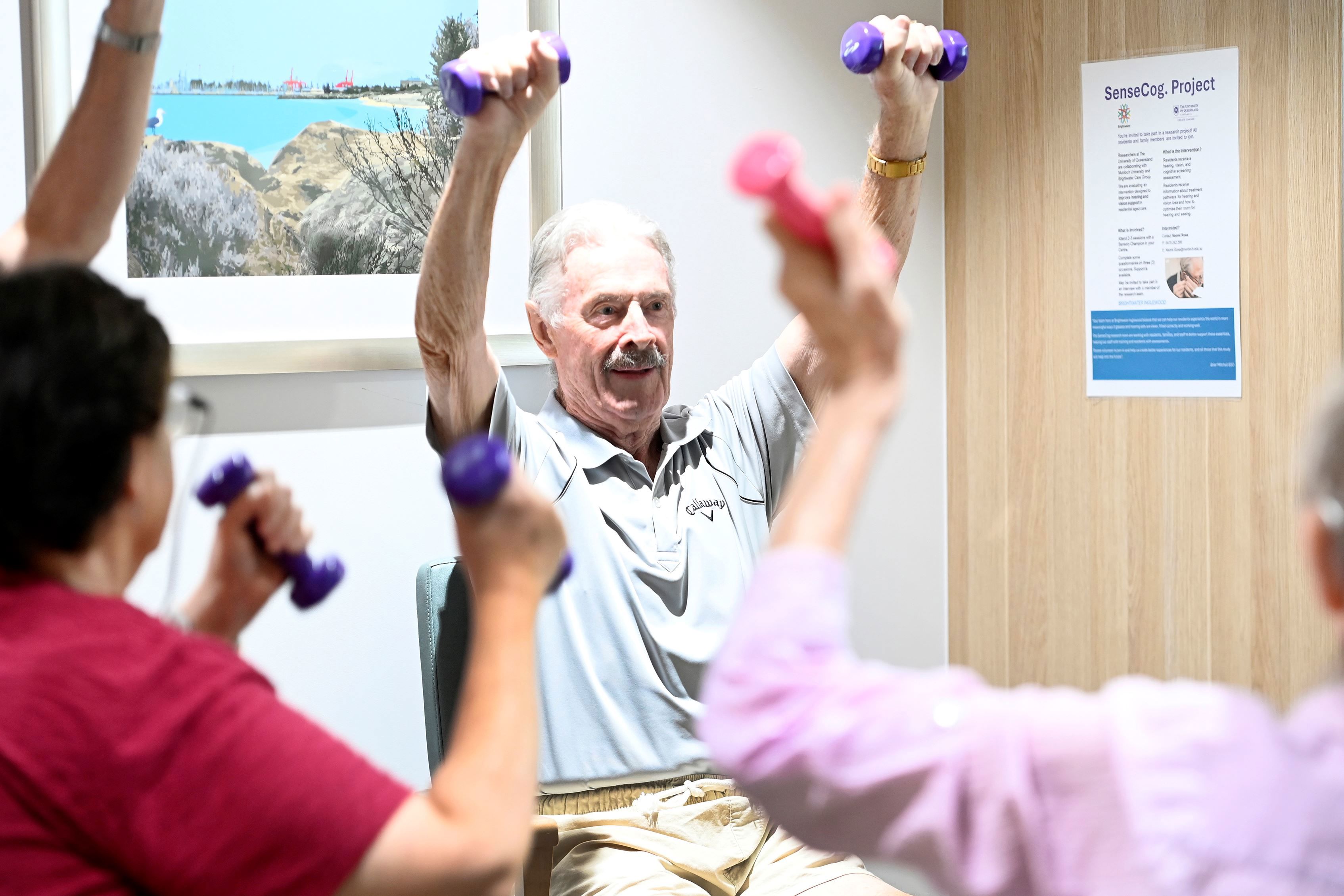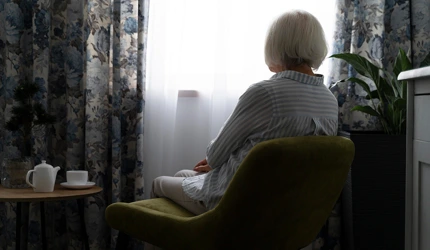
Staying independent with the right help.
As time goes by, it can get harder to do things you’ve always done by yourself such as showering, hanging out washing, and cooking daily meals. Everyday tasks can be exhausting. As a teenager, Brightwater Occupational Therapist (OT) Eloise Hannah saw it happen in her own family.
“My Grandad would talk about how tiring it was to shower himself and one day when I was visiting his OT said, ‘Why use all your energy trying to shower by yourself? Wouldn't you rather have help and spend the rest of your day doing things you enjoy?’,” said Eloise.
That was a revelation for her Grandad who took the OTs advice. It was also the inspiration for Eloise to decide, at just 14, to pursue a career in occupational therapy. Today, she works with Brightwater at Home’s experienced and wide-ranging allied health team.
A little support can make a big difference
Brightwater’s in-home occupational therapists support seniors and people with disabilities to be as independent as possible. They begin with a thorough assessment of a client’s functional health and wellbeing, discussing their challenges and goals and observing their daily activities, before suggesting ways to make it easier and safer to do the things they enjoy.
“We work closely with other Brightwater professionals like physiotherapists, speech pathologists and nurses to get the best outcome for our clients. We don't want people at home struggling when there's help available,” Eloise said.
Working with an OT can offer a wide range of benefits for clients, and peace of mind for families. After doing their assessment, an OT can suggest a range of ways to improve safety and independence for clients. These might include:
- Strategies for everyday tasks such as personal care, shopping or cooking.
- Tools and equipment to suit an individual client’s unique needs.
- Minor changes to the home including removing trip hazards.
- Modifications to the home, from grips and handles to increasing the size of doorways and making bathrooms more accessible.
- Cognitive strategies to help with things like managing medication, and staying engaged in hobby or leisure activities.
Brightwater at Home OT, Alice Burden says it’s about providing a range of options for clients to achieve their goals.
“Often they come to us thinking their difficulty is due to one reason, but when we examine it with OT skills, we are able to identify a root cause,” said Alice. “For example they might be having trouble getting on and off their chair. While well meaning families might think about getting an electric lift chair, the OT will first look at maximising the client’s current abilities to avoid overcompensating with equipment.”
The role of the occupational therapist is not to tell people what to do but to empower them to make informed choices.
“It’s not about giving in to ageing. It’s about taking charge of your life to remain as independent as possible,” Alice said. “It’s about maximising your participation so you can stay more physically capable and cognitively intact for longer.”
Eloise and Alice say there are many things people can do to help themselves, including staying active and taking action early to prevent small problems from becoming bigger issues over time.
“Most people have that goal of wanting to stay at home forever and OTs play a vital role in supporting clients to enjoy a meaningful life for as long as possible,” said Eloise.
If you would like to know more about Brightwater At Home’s Occupational Therapy Services, give us a call on 1300 223 968 or email [email protected].



